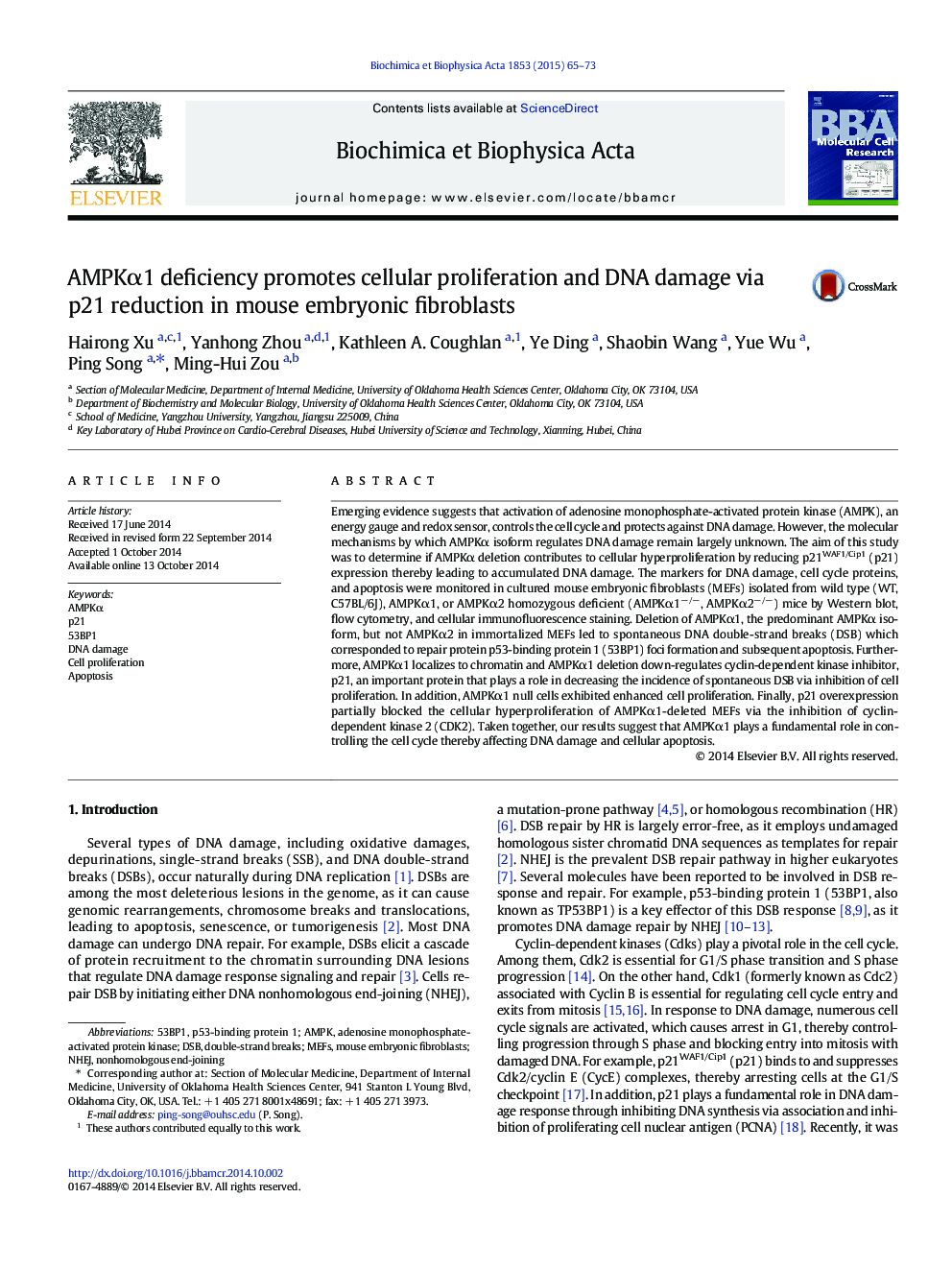| Article ID | Journal | Published Year | Pages | File Type |
|---|---|---|---|---|
| 1950523 | Biochimica et Biophysica Acta (BBA) - Molecular Cell Research | 2015 | 9 Pages |
•AMPKα1 deletion leads to cellular hyperproliferation.•AMPK α1 deletion promotes DNA damage thereby leading to apoptosis.•Deletion of AMPKα1 is associated with a reduction in p21.•p21 overexpression partially decreases DNA damage.•p21 overexpression partially inhibits cell proliferation via CDK2 inhibition.
Emerging evidence suggests that activation of adenosine monophosphate-activated protein kinase (AMPK), an energy gauge and redox sensor, controls the cell cycle and protects against DNA damage. However, the molecular mechanisms by which AMPKα isoform regulates DNA damage remain largely unknown. The aim of this study was to determine if AMPKα deletion contributes to cellular hyperproliferation by reducing p21WAF1/Cip1 (p21) expression thereby leading to accumulated DNA damage. The markers for DNA damage, cell cycle proteins, and apoptosis were monitored in cultured mouse embryonic fibroblasts (MEFs) isolated from wild type (WT, C57BL/6J), AMPKα1, or AMPKα2 homozygous deficient (AMPKα1−/−, AMPKα2−/−) mice by Western blot, flow cytometry, and cellular immunofluorescence staining. Deletion of AMPKα1, the predominant AMPKα isoform, but not AMPKα2 in immortalized MEFs led to spontaneous DNA double-strand breaks (DSB) which corresponded to repair protein p53-binding protein 1 (53BP1) foci formation and subsequent apoptosis. Furthermore, AMPKα1 localizes to chromatin and AMPKα1 deletion down-regulates cyclin-dependent kinase inhibitor, p21, an important protein that plays a role in decreasing the incidence of spontaneous DSB via inhibition of cell proliferation. In addition, AMPKα1 null cells exhibited enhanced cell proliferation. Finally, p21 overexpression partially blocked the cellular hyperproliferation of AMPKα1-deleted MEFs via the inhibition of cyclin-dependent kinase 2 (CDK2). Taken together, our results suggest that AMPKα1 plays a fundamental role in controlling the cell cycle thereby affecting DNA damage and cellular apoptosis.
